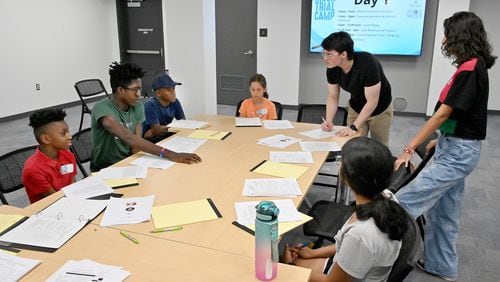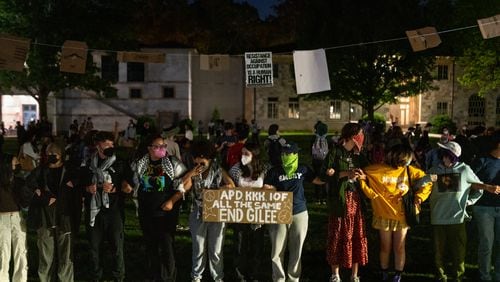At the time, I just remember wishing that life would slow down.
My calendar was filled with get-togethers, tennis lessons, recitals, concerts and club meetings. I was constantly running from one event to the next. The thing is, this was to keep up with the schedule of my then-10-year-old daughter.
I wanted our lives to feel more like a walk in the park than a run on a hamster wheel. I recall saying this to my sister in March 2020. A week later, my wish kind of came true in the form of a global pandemic.
There’s nothing quite like being shut indoors to teach you some lessons. Ideally, for many folks, a pandemic takeaway would have been that life at any extreme is no good.
But here we are, four years past the onset of the pandemic, only to find many middle-class parents have returned to the same cycle of hyper-scheduling, convinced that this will produce a well-rounded kid and help them achieve.
In a recently released study, researchers found that the excessive hours high school students spend on “enrichment activities” — such as sports, clubs, homework, being tutored — is negatively affecting their mental health. It also could harm them academically.
In other words, all these ways we thought we were helping our children, by signing them up for so many “enrichment” activities, may actually be hurting them.
“The strongest effects were among the middle-class kids then among the rich kids,” said the study’s co-author, Carolina Caetano, an economics professor at the University of Georgia Terry College of Business. “With the bottom third, the poorest kids, we don’t see the negative effects, but we don’t see the positive effects either. We were speculating that may have to do with the pressure from universities and the college application process.”
It’s not that extracurricular activities and studying are inherently bad. They definitely are not. But, by the time students reach high school, most of them are at the top of their academic skills curve and maybe should be spending more time doing “non-enrichment activities,” such as freely socializing, relaxing and sleeping.
How great would it be to hear those words as a teen?
The study found these so-called non-enriching activities allow kids to develop the kind of noncognitive skills that ease interpersonal relationships and aid in the development of communication and resilience.
While the study does not offer an ideal number of study hours or enrichment hours — that amount will vary by the individual — there are signs if a teenager is doing too much, Caetano said. Anxiety, depression and emotional outbursts might indicate a student is overextended.
Listen to your kids. Watch them. Consider scaling back when needed, if your child is emotionally teetering, or the whole family feels on edge.
I recently wrote about the nostalgia of malls as a teen hangout. These shopping centers were where so many of us learned our social skills and how to navigate the world. Some members of Gen Z are rediscovering the lost art of hanging out at the mall, despite having social media competing for their attention.
Kids need this unstructured and unsupervised time, away from school lessons and organized activities, whether that’s in a mall or somewhere else.
Caetano said it is advisable to view the younger years — elementary and middle school — as the time to open up kids’ schedules in order to help them start developing the skills they need to function in high school. That’s when course loads naturally increase and college prep is a necessity.
Overscheduling our kids is both a societal and an individual problem, Caetano said. “The majority of families are doing too much enrichment, and a minority may not be doing enough.”
So, value your teens’ unsupervised time as the productive activity that it is, she said. And seek out like-minded parents who are moving in the same direction.
After all, your kid can’t hang out with friends if all of the friends are too busy getting enriched.
Sometimes, it seems that my daughter’s schedule is still too crammed, just like it was back in 2020. Both of us continue to work on that. But don’t worry. I won’t wish for another slowdown.
Read more on the Real Life blog (www.ajc.com/opinion/real-life-blog/) and find Nedra on Facebook (www.facebook.com/AJCRealLifeColumn) and Twitter (@nrhoneajc) or email her at nedra.rhone@ajc.com.
About the Author







